#dutch diaspora
Text

“almond milk” April prompt from @nosebleedclub
#poem#poetry#diaspora poetry#my poetry#bad poetry#dutch diaspora#sad poem#original poem#short poem#immigration poetry#contemporary poetry#original poetry#poems and poetry#Michi Nijen
36 notes
·
View notes
Text
The Fantastic Four in 1981
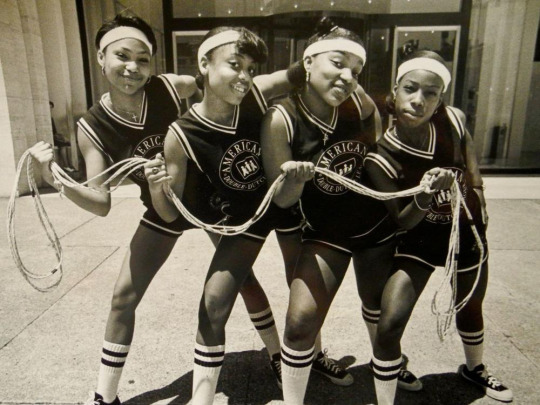
Double Dutch World Champions. Today many people don't know that Double Dutch was an integral part of hip-hop culture and history. Adrienne "Nikki" Adams Howell, Delores Brown Finlayson, De'Shone Adams Goodson, and Robin Oakes Watterson met as junior high schoolers on the Lower East Side in 1978.
#Hip Hop#Double Dutch#Culture#History#Music#Jump Rope#african descent#african diaspora#black woman#youth#nyc#1970s#1980s
29 notes
·
View notes
Text
Ayaan Hirsi Ali is a national treasure and we are lucky that she emigrated to the US, barely fleeing her war-torn homeland of Somalia, and later, escaping woke political persecution in the Netherlands (yes, she was a Dutch Parliamentarian, forced to flee her own adopted Western country). One of her best friends, Theo Van Gogh (great grand nephew of Vincent Van Gogh) was assassinated by an Islamist in Amsterdam, right in front of his house. The 2 made a documentary together, one that focused on lack of rights for Muslim women and misogyny within Islam.
Ayaan Ali grew up a Somali Muslim, her family were devout Muslims, and she was forced to undergo genital mutilation at age 5. She escaped the grip of Islam at 23 by making her way to Netherlands in 1992, and 11 yrs later, in 2003, was elected to Parliament, where she served until 2006, at which time she suffered political persecution by Dutch islamists colluding with the left-wing political parties.
In 2005, Time magazine named Ali as one of the 100 most influential people in the world. In January 2006, Hirsi Ali was recognised as "European of the Year" by Reader's Digest,
Ali should not be ignored, as she knows more about Islam than 99.99% of us Westerners.

#ayaan hirsi ali#Hirsi Ali#Ayyan ali#islam#misogyny in islam#islamic misogyny#womans right in islam#lack of womens rights in islam#islamist#quran#somalia#netherklands#amsterdam#holland#America#United States#US#US assylum#Dutch#dutch assylum#israel#secular-jew#jewish#judaism#diaspora#American#anti islamist#dutch parliament#parliament#womens rights
18 notes
·
View notes
Text

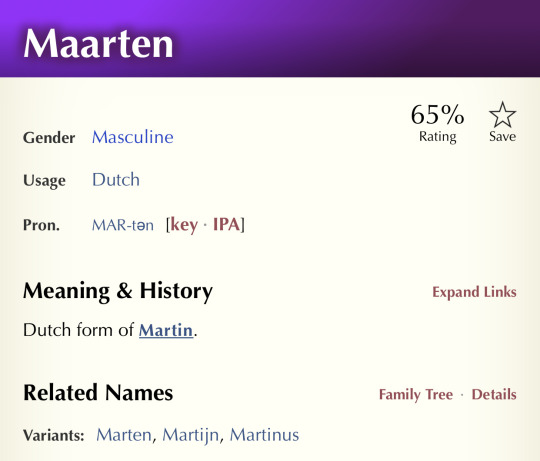


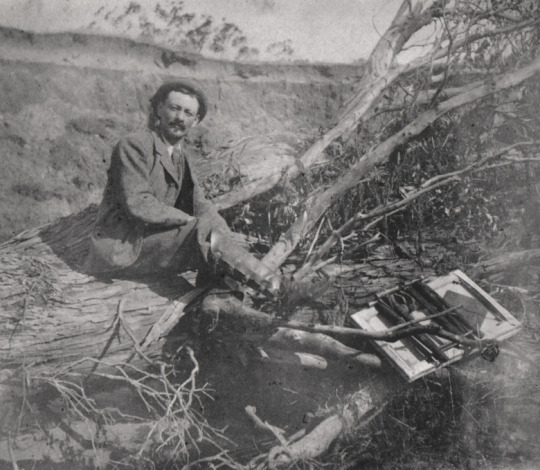





#Dutch Australian musings ig#dutch#Australian#immigrant#web weave#web weaving#poetry#poem#diaspora#ww2
5 notes
·
View notes
Note
I think you should tell some of the delusional people on here that ziyech chose morocco because he was snubbed by the Netherlands and van basten didn't want him. He's resentful and an arrogant prick, the moroccan pride card is getting old and boring ;) ! i'm dutch and support ajax so I know this well They always become proud africans when they get snubbed. You seem to have good sense and good taste, please don't fall in this trap I beg you 🤣🤣🤣
??? oh bless ur heart. can i respond to this with reaction memes im tired skdjjsdj. you seem hateful and i really don't like your attitude/stance on "african/moroccan pride". you are unreasonably harsh, misinformed, and know nothing bout it. im assuming you also don't know anything about diaspora and the struggles with diaspora stuff 🤷🏿♀️ i only pray that hate leaves your heart and you learn what arrogant means 🙏🏿 you wouldn't understand and it's something definitely beyond you. it's not a "trap" to like a player who's repping his country, his motherland etc etc. doesn't matter if he was quote on quote snubbed from this birthplace. he's home, where his heart told him to be. also that ambassador is a bitch so praise higher powers for that sack of a man for leading him to morocco. they were always lucky to have him ❤️💚🇲🇦
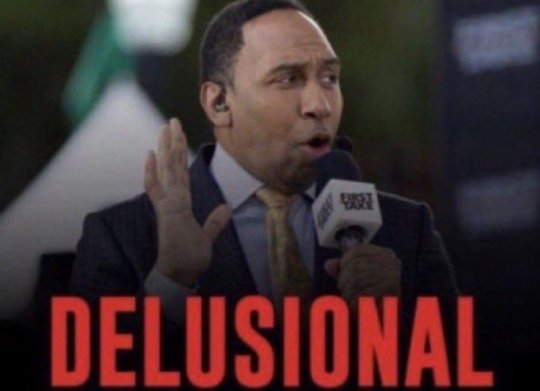


#also ik i have good taste and great sense... thats why IM A ZIYECHISTA...#pls never come into my inbox again LMFAOAOAOA i dont agree with anything you said and there is no common ground#i ... respect (pffft) your willingness to be absolutely wrong. you're dutch you probably wanted him with the flying men its all good#anon asks#tw: being mean#also i could totally make it more elegant with the diaspora add on but I LITERALLY JUST 3 NILED LIVERPOOL IN FIFA IM ON THE ROOOFF#n also this ask does not deserve my time ajsjsjsjsj#racist undertones as well... sheesh the dutch can do it all LMFAOOOO
11 notes
·
View notes
Text
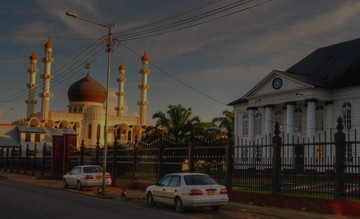





#caribbean synagogues#caribbean jews#jewish west indians#suriname#jamaica#puerto rico#diaspora#jewish diaspora#curacao#sephardi jewish#sephardic#dutc sephardic#dutch sephardi#neveh shalom synagogue#mikvé shalom-emanuel synagogue#shaare shalom synagogue
1 note
·
View note
Note
There’s something that has troubled me for awhile…there are a lot of calls online to take Aliyah, and I get it, I really do. I can understand the draw especially with more observant, visibly Jewish people because the targeting has become horrific. The fear is growing, and we are all looking back at history and getting generational Deja vu in a really traumatic fashion. And while I feel zero pressure to move to Israel atm…
But for Jews in the diaspora, I always wonder if there are any that are proud of where they are from, that identify with it as much as they identify being Jewish. We all have been raised to have Israel and Jerusalem in our heart and our soul. But I am as American as I am Jewish. Between both sides of my family, my blood has been in America for close to 150 years (my father’s side is 120, my mother’s side is closer to 150). If you put a picture of any natural landscape in Israel or the skyline of Jerusalem or Tel Aviv with a skyline of my home city and the Adirondacks or the Appalachian mountains, my emotional pull will be towards the latter set of pictures.
I can’t see myself ever moving to Israel. I feel that if my ancestors wanted to go back to our collective roots, they would and they’d brave the tyranny of the Ottomans and the British Occupation along with the genocidal hostility of the Arab nations. But they came to America, so I am American born and bred, as are my parents and my grandparents and my maternal great grandparents.
And I wonder, are there any other Jews that feel this way about their country? Any fellow Americans, any British, Canadian, and Australian Jews? Are there Jews in Europe and South America that feel the same? Where they will always support Israel and its right to exist, but they can never imagine living there and can only see themselves living in the country they are currently from?
I will always support Israel’s right to exist. But I am American as much as I am Jewish, so I will support from across the Atlantic.
anon, I want you to know your feelings are valid, you shouldn't be pressured to make an Aliyah for any reason, just because Israel is a Jewish country doesn't mean all Jews must live there or want to live there.
in Israel, it's a pretty common question to ask people for their ancestry (for like ice breakers), and a lot of people will be able to tell you exactly where their grandparents are from, even if they have a very mixed ancestry. for us, where we came from is not something to be erased, it's a major a part of who we are. we're not just Israeli we're polish, iraqi, yemenite, moroccan, russian, italian, ethiopian, hollandi (dutch?), sabra, etc.
I can't talk for Jews in the diaspora, I believe there would be many people who share your feelings, but I can tell you most Israelis would probably understand your pride in your ancestry.
- 🐬
18 notes
·
View notes
Text
I'm begging you, please motivate me.
Bow Before the Lord of Spring – Jan's marooning on Kiku's beaches from the shipwreck of the dutch ship de Liefde that changed the destiny of two nations through his first return to the Netherlands. Featuring scurvy, a love born of mutual kindness, yuzu, a feral cat of a nation, the jade stalk going through the back jade gate and linguistic romance.
An Axe of Danegeld – The Viking time travel fic where Alfred knocks himself back too the 9th century. Featuring Matt being mistaken for Vinland and making good on his those rusty axe skills, the bastardization of medieval magic, Magnus on beserker mushrooms, Viking-age child Arthur, and Alfred trying to do wormhole math on trees and meeting his namesake.
The Song of Eirian – The life and death of Britannia with the invasion of the Jutes, Angles and Saxons in the 5th century featuring a portrait of life in the so-called 'Dark Ages,' Brighid's reign as regent, Alasdair attempting to engineer a different fate, Rhys doing his duty and baby Arthur's inability to ever remember his cloak and what it means to love and what it means to die as a nation.
Mother of Exiles – Brighid's odyssey from penal-era Australia to the fever sheds of 1840s Toronto and a final bit of peace in Boston, Massachusetts. Featuring typhus, coffin ships, the Irish diaspora shaping the sons of the British and how the true courage of a nation is in its compassion.
At the End of the Blade – Matt wakes up in a morgue with more holes in him than a block of swiss featuring Arthur committing crimes humanity Alfred tries to solve a murder and what justice means when the victim cannot die.
61 notes
·
View notes
Text
2023 Favorite Reads
Now that 2023 is coming to a close, I wanted to share my 5 favorite reads of this year
The Thousand Autumns of Jacob de Zoet by David Mitchell - This book has easily become an all time favorite. Since I've read it, it's been my go-to when people ask for book recommendations.
No idea how Mitchell turned the tale of a Dutch trader making his fortune in 1799 Dejima into a horror story, but here we are, and we are blessed for it. Please read this book. Don't look up any spoilers and enjoy the dawdling first act where our protagonist simps after the daughter of a samurai and struggles to understand Japanese society and colonial corruption. When you hit The Mountain Fastness, all the clues and major players come into play, and you will not be able to put this book down.
My Brilliant Friend by Elena Ferrante - I slept on Ferrante until January of this year. Despite many recommendations, I was not into the premise of two young girls growing up in the Italian countryside.
Under any other author, this book would've been boring, but Ferrante's prose is one of a kind. She perfectly captures the spirit of being a woman whose future is dictated by a society that expects girls to fit into a certain mold. I highly recommend this book. The writing is so great, you'll be deeply invested in whether young Lila can enroll in middle school after 40 pages.
(The only downside is the unintended (?) queer-baiting!!! The exquisite relationship between two girls that love each other more than life itself is explored in depth and is what makes this book so magical. The author depicts them hetero-coded, but still. STILL. It was cruel to sprinkle in declarations of love and nude scenes then marry them off to men!)
A Country You Can Leave by Asale Angel-Ajani - A coming-of-age story that spotlights the hopelessness and humor that comes with growing up in the impoverished, neglected patches of America.
The book is nonchalant in its depictions of the horrors - which is a nod to how casually we dismiss the needs and struggles of our countrymen. It feels authentic, like it's written from someone that sees our failures, knows how shit it all is, and is trying anyway. Everyone can enjoy this, and anyone that is part of a diaspora within a neoliberal, multiracial society will be able to relate deeply to this book.
The Skin and Its Girl by Sarah Cypher - Eugenides' Middlesex but if Cal were a queer Palestinian woman with royal blue skin. It seems like a strange hook, but our protagonist is 'The Girl' in The Skin and Its Girl. Or is she?
The entire book is setting up for the twist, which is somehow unexpected (impressive considering how in-your-face the hints are!), satisfying, and wonderfully poetic.
Annihilation by Jeff Vandermeer - This book is a masterclass in horror writing and story pacing. Every scene and sentence felt deliberately crafted to evoke a particular feeling, or to pay homage to a specific trope in horror writing. The book smoothly bounces from thriller, psychological horror, mystery, and whatever the hell is going on in Call of Cthulhu. Also, is there a word for the enjoyment of being gaslit? At some point, I was questioning my understanding of book's reality, and I was loving it.
#2023 Reads#2023 Fave Reads#The Thousand Autumns of Jacob de Zoet#My Brilliant Friend#A Country You Can Leave#The Skin and Its Girl#Annihilation
11 notes
·
View notes
Text
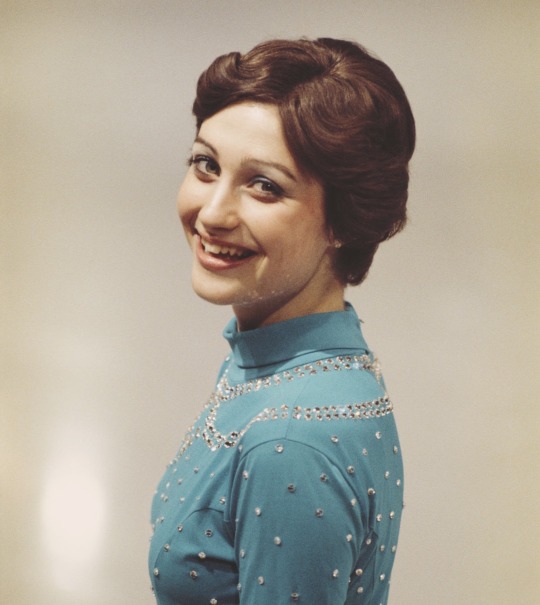
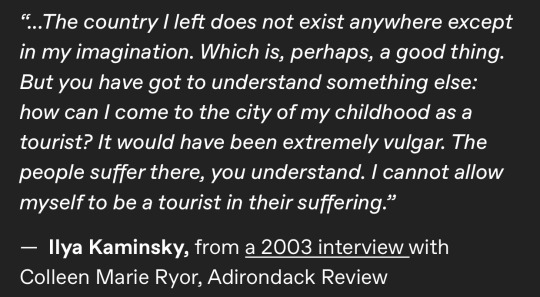





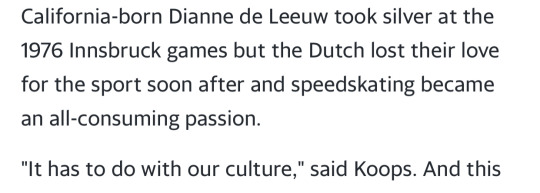


Dutch-American figure skater Dianne De Leeuw and poetry about diaspora and language
#sorry for projecting my immigrant pains on some random athlete do you still love me#diaspora#diaspora poetry#dutch#dutch diaspora#poem#poetry#diaspora blues#nederlands#immigrant#immigration#Olympics#figure skating#figure skater#ice skating#figure skating tumblr#⛸️#web weave#web weaving
3 notes
·
View notes
Note
hi hala!! I’m curious, what do you study at uni? and what’s your thesis about? (sorry if you’ve talked about this before, feel free to just point me in the right direction haha) also good luck with the thesis writing!!🫶🏻
Hi Mary!! aw you're so sweet for asking! I'm doing my postgraduate in linguistics so I did a lot of exams related to linguistics. My main interest is sociolinguistics which is what I decided to do my thesis in. Sociolinguistics is basically a branch of linguistics studies: if general linguistics studies how any language is structured (from phonetics to morphology to lexicon etc), sociolinguistics focus on linguistics variation. It's a field of study that was born in the 1960s; before that there was a very normative approach to the study of languages (linguistics focused on what was considered normative, not taking variation into accounts, a more traditional approach that didn't take diversity into accounts), then from the 60s lots of studies started to focus on linguistic variation, starting mainly in the US which obviously had, at that time already, a very multicultural society, with mix of languages, sub-cultures etc. I guess it started when the west realised, especially within the whole post-colonialism process, that "their world" wasn't as it used to be, and so languages. So basically you study how a language can vary across multiple factors - the social group you belong, your social class, education, sense of identity etc, ethnicity etc.
My thesis is specifically in language crossing between moroccan darija, french, italian, dutch. Because I have family in france & the netherlands, I asked them to go around and record moroccans born there pronouncing the same single sentence. I did the same with everyone i know here in italy. I'm comparing how this same sentence change phonetically especially in the articulation of wovels, diving people into groups based on the geographical origins of their parents (I chose 3 different moroccan areas), and how italian, french and dutch influence the way moroccans born into diaspora pronounce sounds differently, and how they transliterate arabic differently in latin alphabet. I basically use phonetics softwares where you can see how different wovels and consonants are pronounced and have different patterns etc. [literally how the tongue positions in a certain way in articulating sounds, or lips etc]. Also taking social backgrounds into accounts, too. I don't know if I'm making any sense 😭 But yes that's pretty much it!! SORRY for nerding about it, And THANK YOU ❤️❤️❤️
8 notes
·
View notes
Text
just saw a post on instagram that pissed me off to no end so i'm gonna vent here lol. supposed to be an "anti-imperialist" "resource" on the history of taiwan but it is written entirely by diaspora chinese people, no mention of taiwanese indigenous people, and (correctly) calls out dutch, japanese, and american colonization/imperialism while (incorrectly) never mentioning chinese colonization/imperialism??? and using language like "restored chinese sovereignty over taiwan"??? like i get that we're trying to fight against sinophobia but the way to do that canNOT be via revisionist history

also i feel like i keep seeing the qiao collective associated with this kind of revisionist history so lol. lmao even.
4 notes
·
View notes
Text
Sorry for being weird and intense I left my country 15 years ago and I don’t know if I actually survived that
#other fun facts:#I’m a Syriac orthodox convert#and I’m autistic#dutch#diaspora#immigrant#spilled thoughts
2 notes
·
View notes
Text
Though I’m waiting for The Smoke Room to be finished before I offer a full-blown review of my thoughts on the game and themes, I have a few thoughts on each of the routes as I’ve encountered them thus far.
1915 is a chaotic era in both US and world history. Being set in a historical era means that I approach the subject matter more from my analytical side than personal side; in some ways I relate with many of the other characters, but it isn’t to the same degree that I have with Echo; not that this is a bad thing, but it will certainly influence my analysis to follow.
It makes sense to me that The Smoke Room using Echo as a setting would not be concerned with world affairs; that being said, I figured Cliff’s story might have involved itself a little more with the Great War; he would have been around fighting age, and any relatives he had as a member of the gentry would have been conscripted as part of the Dutch’s contingency in case the war came to the Netherlands, not that it did. Even so, nationalist sentiments among all the countries of Europe at the time were arguably at its height; many of the world’s biggest empires in this era were in an existential fight for their place and prestige on the world stage. I wouldn’t expect Cliff himself to have any particular notions of pride in nationhood, but I would have thought to have glimpsed some of that in at least some of his family.
By that same measure, I’m curious to know more of Nik’s own situation, given that his own homeland is the chief battleground for the Eastern Front; any family he has left there would be in a kind of peril that no amount of money he might send could save them from. Even if he could pay for safe passage, any escape through the Baltic would have been at risk of attack from unrestricted U-Boat warfare as soon as they hit the North Atlantic. For both narrative and character reasons, these considerations are extremely peripheral to the central focus of the Smoke Room as a whole, but at the same time I can’t help but wonder how these factors would play into the psyche and the motivations of the characters, however minor.
On the domestic front, The Smoke Room constructs a much more sophisticated picture. The more developed eastern United States coming into the modern age, slowly brings its technological progress and the dominion of capital upon the last vestiges of the United States frontier. With the growing assertion of federal oversight on these lands, the last vestiges of native independence are slowly but surely extinguished. On the opposite coast, the rapid development of California as a (former) hub for immigrants from the East and the gold rushes up and down the coast has capped the other side of the United States with a cosmopolitan hub and economic powerhouse in its own right. In the middle of all these developments, Echo becomes the confluence of a number of diverse characters of all sorts of backgrounds, the nexus of dire changes that bear down on a small town founded in the middle of a lurking, and growing, horror. In contrast to the Echo of 2015, the boomtown’s population was much larger, and much more diverse. Many more will presumably be witness to the horror that will begin the town’s slow but inevitable decline.
The inclusion of Chinese immigrants into the picture was a welcome surprise for me; the story of the diaspora that came in the late 19th century and their reaches is not readily portrayed outside of places beyond their point of origin and a brief mention of their work on the railroads, but some Chinese did in fact settle in the United States frontier (and in parts of the South!), as early as the closing years of the Wild West era. Their own eventual involvement in what may befall the town is a point of keen interest to me; as far as Echo itself is concerned, there will be more reasons than just racial tensions that would prompt their eventual exodus from the town.
In contrast to the paranormal forces of Echo as experienced in the modern day, the beings as they exist The Smoke Room thus far has been relegated to the background, presumably to erupt towards the end of the routes as events come to a head. A greater emphasis is placed on horrors of the artificial sort; the class disparity, the racism, the homophobia, the various factors that divide the town into haves and have-nots set the stage by which the supernatural events will inevitably unfold. I get a growing impression of “the Sins of the Fathers” as a theme in The Smoke Room; but this is by no means as black and white as the term implies. Like its predecessor, the lines between protagonist and antagonists are blurred. Among the more sympathetic characters there are real flaws that lead to devastating consequences. Sam kills in self-defense, kicking off the awakening of the evil that will eventually consume the town. William’s sense of justice, while not legalistic, is still bound by laws as applied by the pressure and the influence of those in power and led to the shattering of a family. Murdoch’s people-pleasing behavior puts him between the conflicting goals of his loved ones. Cliff’s well-intentioned anthropological pursuits retains the imperial paternalism of his privileged origins in Europe, and Nik’s protectiveness puts him at risk for the same pitfalls as Leo will fall into 100 years later. Countless external and internal factors, at a socioeconomic scale impacting the psyche of many individuals, create the dialectic which will set the destructive cycle of Echo to follow. From the beginning, the end is a foregone conclusion.
To bring this full circle with my initial observations before, I anticipate (and hope) that The Smoke Room will retain much of my initial impressions of Echo; a microcosm of the human condition at a point in time; accelerated by supernatural means to an inevitable conclusion. What we observe in the Smoke Room is Echo at its height, where the confluence of people from all around the world, great and humble alike, coalesce around a point at which its slow, entropic decline will begin. It serves as the counterpoint to Arches, where a small external group of strangers is witness to the final moments of the cycle burning through the cinders of its last victims, its last perpetuators.
9 notes
·
View notes
Text
so i know diaspora is just “spread of people from their place of origin” but i always associated the term with a little more uhhh. forced. dispersal.
so you can imagine the hwaet moment i had when i saw someone unironically use “dutch diaspora” for being a third generation american of dutch descent
#seg.misc#i also feel like it implies being raised in a wider community of said culture#and like…#obviously idk for sure but i doubt there’s enclaves of dutch people who raise their kids dutch in the us#also cause i feel like We The Dutch aren’t exactly the ‘strong hold on cultural identity when emigrating’ kinds
4 notes
·
View notes
Text


1st of July - keti koti
Sranan Tongo for chains broken.
Today the people of the Dutch carribeans commemorate the abolishment of slavery. This holiday is celebrated in the Dutch carribean and the Netherlands by the large diaspora living there. In the Dutch carribeans outside of Surinam this holiday is called emancipation day
47 notes
·
View notes